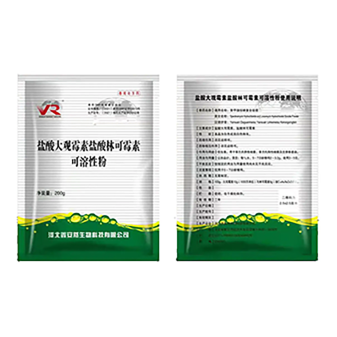- Afrikaans
- Albanian
- Amharic
- Arabic
- Armenian
- Azerbaijani
- Basque
- Belarusian
- Bengali
- Bosnian
- Bulgarian
- Catalan
- Cebuano
- Corsican
- Croatian
- Czech
- Danish
- Dutch
- English
- Esperanto
- Estonian
- Finnish
- French
- Frisian
- Galician
- Georgian
- German
- Greek
- Gujarati
- Haitian Creole
- hausa
- hawaiian
- Hebrew
- Hindi
- Miao
- Hungarian
- Icelandic
- igbo
- Indonesian
- irish
- Italian
- Japanese
- Javanese
- Kannada
- kazakh
- Khmer
- Rwandese
- Korean
- Kurdish
- Kyrgyz
- Lao
- Latin
- Latvian
- Lithuanian
- Luxembourgish
- Macedonian
- Malgashi
- Malay
- Malayalam
- Maltese
- Maori
- Marathi
- Mongolian
- Myanmar
- Nepali
- Norwegian
- Norwegian
- Occitan
- Pashto
- Persian
- Polish
- Portuguese
- Punjabi
- Romanian
- Russian
- Samoan
- Scottish Gaelic
- Serbian
- Sesotho
- Shona
- Sindhi
- Sinhala
- Slovak
- Slovenian
- Somali
- Spanish
- Sundanese
- Swahili
- Swedish
- Tagalog
- Tajik
- Tamil
- Tatar
- Telugu
- Thai
- Turkish
- Turkmen
- Ukrainian
- Urdu
- Uighur
- Uzbek
- Vietnamese
- Welsh
- Bantu
- Yiddish
- Yoruba
- Zulu
9 月 . 24, 2024 23:34 Back to list
Fundamentals of Animal Nutrition and Feeding Practices for Optimal Health
Basic Animal Nutrition and Feeding
Animal nutrition plays a crucial role in promoting the health, productivity, and welfare of livestock and pets. Understanding the fundamentals of animal nutrition and feeding practices is essential for anyone involved in animal husbandry, veterinary science, or pet care. This article outlines the basic principles of animal nutrition, types of nutrients, and the importance of a balanced diet.
Nutritional Requirements
Like humans, animals have specific nutritional requirements that vary by species, age, weight, and purpose. The primary classes of nutrients needed by animals include carbohydrates, proteins, fats, vitamins, minerals, and water. Each of these nutrients serves distinct functions
1. Carbohydrates These are the primary source of energy for most animals. They are found in grains, fruits, and vegetables. Fiber, a type of carbohydrate, is especially important for herbivores as it aids in digestion.
2. Proteins Essential for growth, repair, and maintenance of body tissues, proteins are made up of amino acids. Animals require certain amino acids from their diet because they cannot synthesize them. High-quality protein sources include meat, fish, dairy, and legumes.
3. Fats Fats provide a concentrated source of energy and are essential for the absorption of fat-soluble vitamins (A, D, E, K). They also play a vital role in maintaining healthy skin and fur. Sources of fat include oils, seeds, and animal fats.
4. Vitamins and Minerals These micronutrients, while required in smaller amounts, are critical for various bodily functions, such as immune response, bone development, and enzyme function. A deficiency in essential vitamins and minerals can lead to significant health issues.
5. Water Often overlooked, water is the most vital nutrient for all life forms. It is essential for hydration, digestion, and the regulation of body temperature. Animals should always have access to clean and fresh water.
basic animal nutrition and feeding

Balanced Diet
A balanced diet is fundamental for optimal growth, reproduction, and overall health. Nutritional imbalances can lead to deficiencies or toxicities that may affect an animal's health. For instance, cows require a diet high in roughage for proper digestion, while dogs need a protein-rich diet to thrive.
The formulation of an appropriate diet is influenced by various factors, including the animal's life stage, production goals, and overall health status. For example, young animals have different nutritional needs than adult animals. Additionally, pregnant or lactating animals require increased energy and nutrient intake to support fetal development and milk production.
Feeding Practices
Effective feeding practices are equally important as the nutritional quality of the diet. These practices include
- Regular Feeding Schedule Establishing a consistent feeding routine helps to regulate an animal's metabolism. - Portion Control Adjusting portion sizes based on the animal’s requirements prevents overfeeding or underfeeding, both of which can lead to health problems. - Observation Regularly monitoring an animal's body condition and health can help identify dietary adjustments needed for maintaining optimal health.
Conclusion
In summary, understanding the basics of animal nutrition and feeding is crucial for ensuring the health and wellbeing of animals. By focusing on providing a balanced diet that meets the specific needs of each species, caretakers can optimize growth, productivity, and overall health. Emphasizing the importance of quality feeding practices further enhances the efficacy of nutritional strategies, making animal nutrition a vital component of responsible animal management.
-
The Power of Radix Isatidis Extract for Your Health and Wellness
NewsOct.29,2024
-
Neomycin Sulfate Soluble Powder: A Versatile Solution for Pet Health
NewsOct.29,2024
-
Lincomycin Hydrochloride Soluble Powder – The Essential Solution
NewsOct.29,2024
-
Garamycin Gentamicin Sulfate for Effective Infection Control
NewsOct.29,2024
-
Doxycycline Hyclate Soluble Powder: Your Antibiotic Needs
NewsOct.29,2024
-
Tilmicosin Premix: The Ultimate Solution for Poultry Health
NewsOct.29,2024













